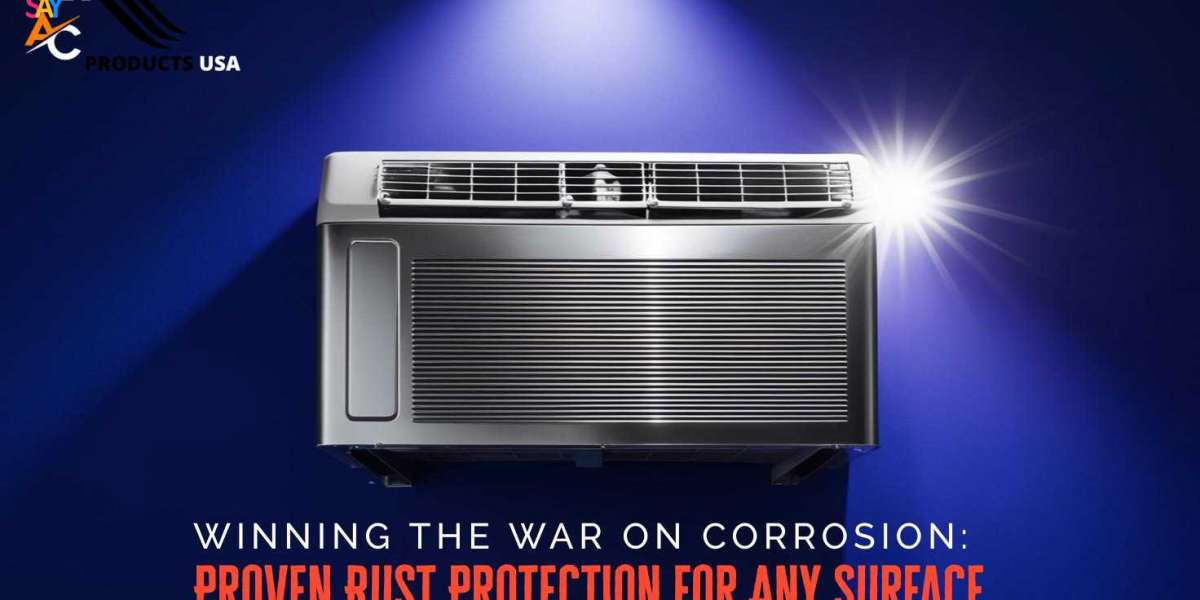Why Rust Occurs in the First Place
For years, all air conditioning manufacturers have been plagued with the expensive problem of condensing coils corroding. When this happens, it results in unsightly and ineffective coils and results in higher electric bills. Generally, condensing coils are cleaned twice a year. Corrosion is a continuous process and will degrade them between cleanings. Cleaning the coils more often shortens the life of the fins and results in the need for replacement (American Air and Heat, 2011).
Iron or any of its alloys, like steel, is exposed to oxygen and moisture to get rusted. Oxidation does not occur instantly; time is taken for the metal to rust. The more humidity, air, and salt, therefore, the faster rust forms; that's why vehicles and patio furniture, ocean equipment, and industrial equipment are especially vulnerable. Well, the good news is that if someone employs better safeguards, one can stop it in its tracks altogether or slow it down significantly.
Best Rust Protection Techniques
Now, let’s explore some of the most effective techniques for rust protection:
Prior to applying any protective coating, you have to begin with a clean, rust-free surface. That's when rust remover for metal is helpful. The products chemically break down rust and put the surface in a cleaner, more stable state.
There are a variety of types:
- Acid-based rust removers: These work quickly but should be used with caution.
- Chelating agents: These are safer for both the environment and the user."**
- Mechanical options: Such as wire brushes and sandblasting, which can be employed in conjunction with chemical removers.
After removing the rust, it's important to move fast and preserve the clean metal from re-oxidizing.
- Anti-Rust Paint
Anti-rust paint plays a double role: it not only makes metal look nice, but it also forms a shield against water and oxygen. These paints have special ingredients of rust inhibitors that either destroy the already formed rust or stop it from developing in the first place.
Anti-rust paints are available in different forms:
- Primer-only paints: Intended to prime the surface for a top coat.
- 2-in-1 paints: Include primer and topcoat for ease.
- Direct-to-rust paints: For fast applications on slightly rusted surfaces without stripping off the rust completely.
They're typically applied to fences, trailers, automobiles, and other exposed metal surfaces.
- Anti-Corrosion Paint
Though similar to anti-rust paint, anti-corrosion paint provides wider protection. It's designed not only to prevent rust but also other forms of chemical, salt, and industrial contaminant corrosion.
Applied widely for marine and industrial use, anti-corrosion paint is specifically suited for:
- Bridges
- Ships
- Pipelines
- Construction machinery
It's frequently applied in layers and may contain zinc-rich primers to provide galvanic protection.
- Corrosion-Resistant Coating
In addition to paint, corrosion-resistant coatings involve a range of materials intended to create a hard, impermeable coating over the metal. These coatings may be:
- Epoxy-based: For high-strength, chemical-resistant protection.
- Ceramic coatings: Best suited for high-temperature use.
- Powder coatings: Electrostatically sprayed and heat-baked, delivering better wear.
These coatings are applied widely in automotive, aerospace, and manufacturing industries where performance and life are of utmost importance.
Selecting the Right Rust Protection Method
When choosing a method, take into account the following factors:
- Environment: Will the metal come into contact with saltwater, high humidity, or industrial solvents?
- Functionality: Will the item be structural, for ornamentation, or in continuous motion?
- Application method: Will you have spray equipment, brush facilities, or industrial coating centers available?
- Maintenance cycle: How frequently are you prepared to renew the protection?
For example, a domestic DIYer would select a rust remover and a coat of anti-rust paint, whereas a marine operator will need an epoxy-based corrosion-resistant coating.
FAQs Regarding Rust Protection
1. What is the difference between anti-rust paint and anti-corrosion paint?
Anti-rust paint is unique to the rusting of Iron and Steel (material). It is usually filled with rust inhibitors such as red oxide or zinc phosphate. Anti-corrosion paint is more general in protection and can be used to guard metals against atmospheric, chemical, and salt-spray corrosion. It is indicated for more severe or industrial exposures.
2. Can rust be removed permanently?
Only rust remover for metal can be removed by cleaning rust, but temporarily. When brought into contact with oxygen and water, the surface so cleaned will once more develop rust. Protection should henceforth be given immediately after cleaning using a covering of anti-rust paint or corrosion-proof coat.
3. How long does corrosion-resistant coating last?
The lifespan of a corrosion-resistant coating is type, thickness, and exposure dependent. A high-thickness, high-quality epoxy coat can last 10+ years in mild exposure, and a well-maintained marine-grade powder coat lasts even longer. Periodic inspection and prompt touch-ups can also be a valuable aid in adding extra protection.
Conclusion
Rust is not the victor. Taking a strategic application of rust removers on metal, anti-rust paint, corrosion-resistant paint, and protective corrosion coatings will give your equipment, vehicles, and buildings years of glorious performance. Start by determining how badly corroded and what kind of exposure your metal is exposed to. Using the best rust protection will provide a longer period of use. Any homeowner, mechanic, or facilities manager must invest in the appropriate rust protection now to save headaches, money, and time in the future.
Looking for professional-grade rust protection products? Check out AC Products USA—a trusted name in high-performance coatings and removers.




